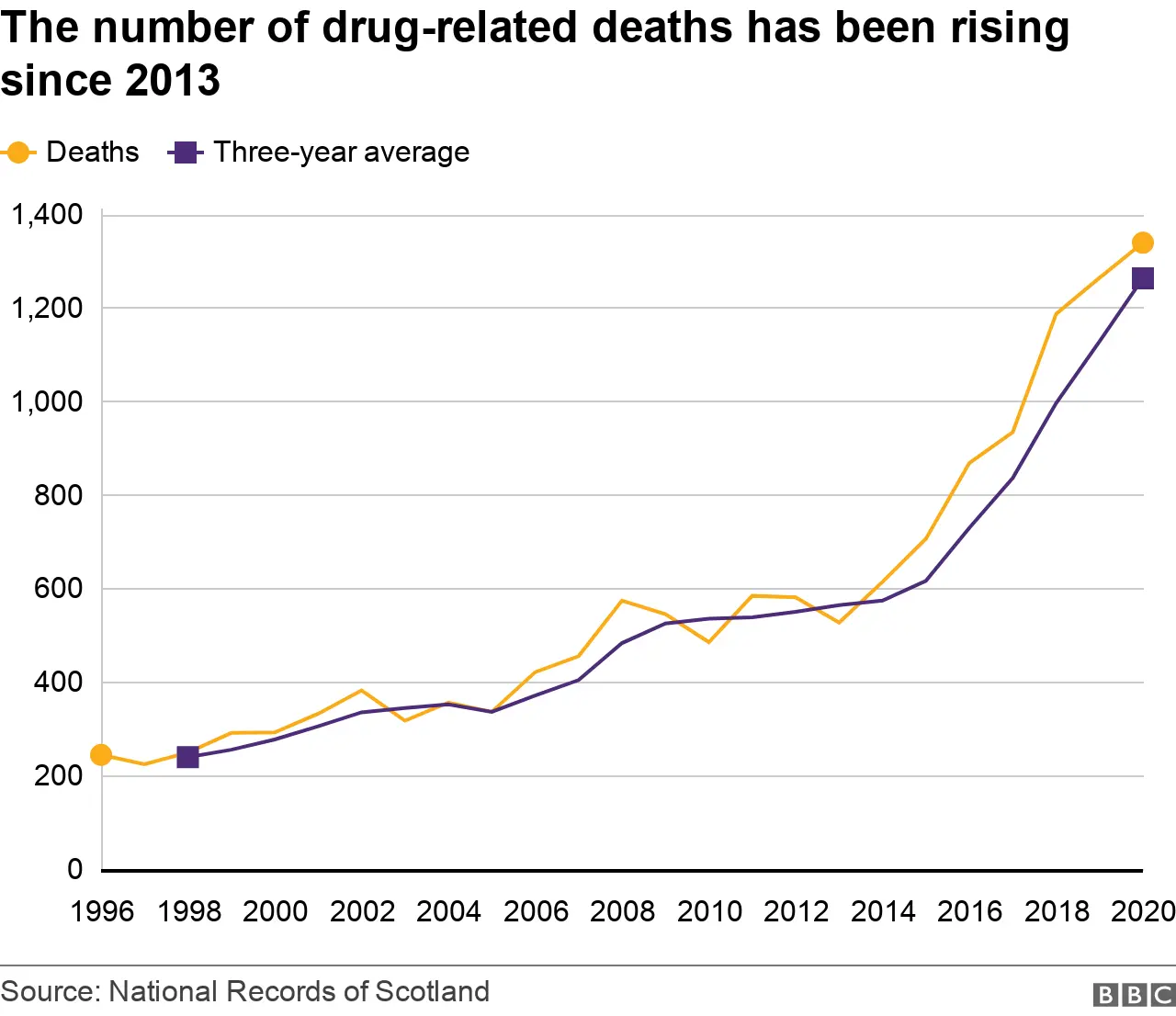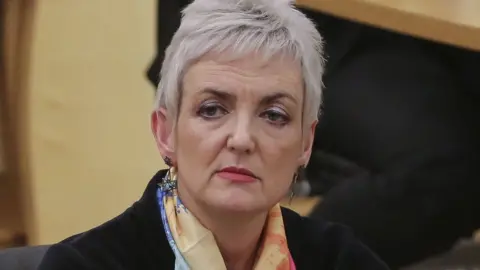Drug deaths chief resigned over 'rushed job'
The head of a Scotland's drug deaths taskforce resigned because she was not prepared to do a "rushed job" on the final report, she has told the BBC.
Prof Catriona Matheson stepped down as chairwoman of the Scottish government-backed group last month.
It came after it emerged the taskforce had been ordered to submit its conclusions six months early.
In response, Drugs Policy Minister Angela Constance said there was a need to move forward as quickly as possible.
In her BBC Scotland interview Prof Matheson said the Scottish government's request for all work to be completed by July this year came "out of the blue" and only a fortnight after the taskforce received appointment letters with a deadline of December.
Prof Matheson said it was a sign that the work of the taskforce did not have the full support of the minister.
"For us, we weren't prepared to continue and do a rushed job," she said.
She said that projects commissioned by the taskforce to gather evidence and learn best practice "won't be finished in six months' time".
The professor said she was "baffled" about the motivations behind the request for work to be finished sooner and believed the taskforce's "evidence-based approach" was being "squeezed" by politics.
The taskforce chief said: "Is it about being seen to do something, rather than the right thing? That is my concern."

Drug deaths in Scotland reached a record high of 1,339 in 2020 and early figures for last year suggest there was only a slight decrease.
It is by far the highest drug death rate recorded by any country in Europe and is more than three-and-a-half times that of England and Wales.
Prof Matheson is a professor of substance use at the University of Stirling and has 30 years of experience in the field.
Her taskforce began its work in September 2019 and it was designed to gather evidence and provide solutions to the drugs emergency.
Ms Constance became drugs minister at the start of last year.
Prof Matheson said it started well but the new minister had since "downplayed" the role of the taskforce in the "national mission" to tackle Scotland's record number of drug-related deaths.
She said the minister had attended just two of the taskforce's meetings in 2021, despite the group meeting every six weeks.
However, Ms Constance said she met Ms Matheson on 10 occasions to receive updates but allowed the taskforce the space to discuss issues in a free and frank manner.
In response to the drugs emergency, First Minister Nicola Sturgeon has announced a five-year investment of £250m to improve recovery and addiction services.
The Scottish government recently introduced a Naloxone initiative - training emergency services to use an overdose reversal drug - as well as an anti-stigma publicity campaign.
Prof Matheson said these projects were based on work carried out by the taskforce.
There is also work to improve treatment standards for addiction across Scotland.
 Getty Images
Getty ImagesSince the taskforce was established, however, there have been growing calls for changes in drugs laws that would enable projects such as safe consumption rooms and better access to residential rehabilitation.
A consultation on a Right to Recovery Bill introduced by Scottish Conservatives' leader Douglas Ross will also close on Wednesday.
Prof Matheson said the Scottish government are "getting a lot of things right" but the taskforce offered "a way through a cacophony of voices".
She said the taskforce was following an evidence-based approach rather than trying to please everybody.
"Politicians will see things differently, of course, but for me, we were offering something else," she said.
"It was really a unique opportunity to steer through some of that."
Prof Matheson said she was hoping her resignation, along with that of her vice-chair Neil Richardson, would be a "wake-up call".
 Getty Images
Getty ImagesIn a written response to the BBC interview, Drugs Policy Minister Angela Constance said she had made clear in January last year that the taskforce's work needed to be accelerated.
She said there was an urgent need to implement changes that would make a real and tangible difference to people's lives.
Ms Constance said the taskforce had moved to its second phase in June with a streamlined remit to move towards developing rapid recommendations.
She thanked Ms Matheson for her hard work and commitment and said she was in discussions with the remaining taskforce members .
"We will continue to build on the momentum established in the first year of the National Mission to improve and save lives, working with expert groups, frontline workers and those with lived, living and family experience to develop our response to the drug deaths crisis in an evidence-based and effective way," she said.
She later told BBC Scotland's The Nine: "I was very clear, very consistent, with the taskforce and its leadership, with parliament and other stakeholders, that we need to speed up and scale up in the past year.
"I was very sorry to see Professor Matheson resign, I was somewhat surprised… I was surprised in seeking recommendations three years, rather than three and a half years in, it received this response."
